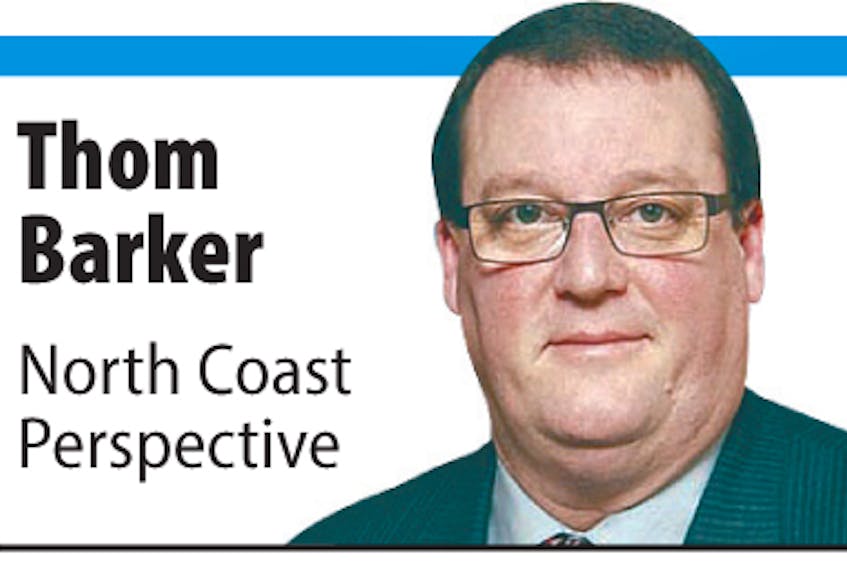I must have a strange affinity for provinces that do weird things with time zones.
As a caveat, I must clarify, by weird I do not necessarily mean bad, merely unusual, as in things other jurisdictions don’t do.
Prior to living in Newfoundland and Labrador, I was resident in Saskatchewan, where unlike 98 (thereabout) per cent of North America, we did not observe daylight saving time (DST).
In Newfoundland and Labrador, we do spring forward and fall back, but there’s this quirky half-hour thing on the island and a portion of the Labrador south coast.
More by Thom Barker:
How do we get past the propaganda divide?
Is beauty really in the eye of the beholder?
Coming to terms with the insidious presence of glucides
Do the ends ever justify the memes?
Why not? Newfoundland and Saskatchewan have reputations for liking to get their weird on, sometimes, it seems, solely for the sake of weirdness.
I have always argued that Saskatchewan is correct to dance to its own drummer and not participate in the waste of time (WOT) that is daylight saving. I am speaking figuratively, of course; you cannot literally waste a finite commodity (commodity here also being figurative).
In that same vein, we should also dispense, here, with the stupidest argument ever put forward in support of DST, that it gives us extra daylight. What it actually does is redistribute daylight to the advantage of night people and disadvantage of morning people. This becomes moot the further north and closer to June 21 you get.
Although Saskatchewan gets all the DST fanfare for its temporal nose-thumbing, the province is not alone, even in Canada. There are regions of B.C., Nunavut, Ontario and Quebec that have opted out of WOT.
Newfoundland is not entirely alone in Canada, either. The Town of Blanc Sablon, Quebec, while officially on Eastern Time, actually operates on Newfoundland Time as its stock-in-trade is the N.L. ferry service. Really, the town should just secede from la belle province already.
And by world standards, N.L. is hardly the only deviant (again meaning outside the norm, not necessarily bad, although we do welcome letters to the editor). India, Iran, Afghanistan, Burma, Sri Lanka, the Marquesas and parts of Australia also use half-hour deviations. Nepal has a quarter hour difference.
Personally, it makes me a bit uncomfortable, but that may be my CDO (like OCD only the letters are in the correct order) coming out.
Hours, time zones, daylight savings are all about convenience in a shrinking world.
Back in horse-and-buggy days, time, or more accurately, the measurement of time, was localized. It simply did not matter if Town A thought it was 9:13 a.m. and Town B 100 miles down the road thought it was 9:27 a.m. because by the time you got there, depending on the speediness of your carriage horses, it was after dark anyway.
Train travel changed everything.
Initially, railroads maintained hundreds of time zones in North America, based on the fact every city used its own standard. To alleviate associated scheduling problems, the railroads adopted 100 standard time zones, eventually paring it down to four in 1883, roughly analogous to what we have today. Time zones were a necessary result of the modern age.
It is still messy, though. Although there is a scientific basis for time zones (the meridian of each being the longitude at which the sun reaches its zenith at 12 noon) — the western and eastern boundaries of the zones generally conform to political borders.
That makes sense, going back to Blanc Sablon, which is clearly geographically in the Atlantic Time Zone, but also part of Quebec (for now).
Which brings us to Newfoundland. Before living here, I had never given it a whole lot of thought. Tune in tonight a 10 o-clock, 10:30 in Newfoundland, was simply a fact of life.
Looking at a time zone map, the island is, in fact, entirely within the Atlantic zone (UTC -4). It is also almost entirely within the eastern half of UTC -4, abutting UTC -3 on the east coast, which is where St. John’s is. Since St. John’s is the centre of the N.L. universe ([email protected]) and Newfoundland was a sovereign dominion when time zones were established, it is perfectly reasonable for it to have its own half increment (UTC -3.5).
Also looking at the map, Saskatchewan is almost entirely within the Mountain Time Zone (UTC -7), but chose to adopt Central time (UTC -6).
Conclusions:
Newfoundland should keep its half-hour offset.
Saskatchewan should move to Mountain Time.
Everybody should stop with the daylight savings already.









